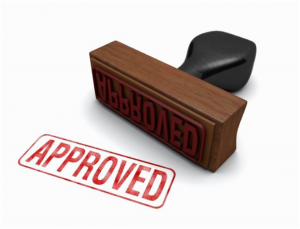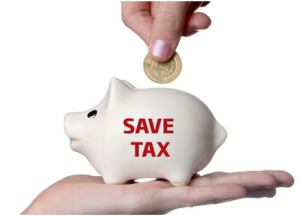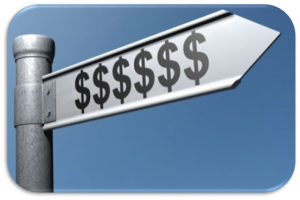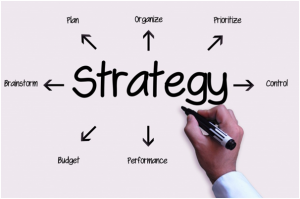Author: Yml Yml
YML Insight February 2015
From your Finance Specialist
How much can I borrow?
To know how much you can borrow without changing your lifestyle, check how much you can save per week after paying all your bills.
For every $100 savings you can borrow approximately $70,000. Include the rent you are currently paying as a saving as when you move to the new property you will no-longer pay it.
This rough estimation will ensure you do not over-commit. This week’s rate starts from 4.6% variable (not honeymoon loan), depending on the loan amount. The fixed rate starts from 4.59%.
From your Trusted Accountant
How do I save on my tax?
The first step is to choose the right entity structure as this could not only help you save on tax, but also provide flexibility and asset protection.
What can a claim as a deduction?
Donations to registered charities, management fees paid to a financial planner and/ or tax agent, cost of income protection or sickness and accident insurance premiums,
work related expenses including books, magazines, uniform, equipment, parking, tolls, taxis, public transport, etc. If you are maintaining a home office you can claim the cost of electricity,
internet, home phone, mobile etc, depending on how many hours per week you spend working from your home office.
From Your Financial Adviser
Do you have a savings goal, or a plan to reduce your mortgage this year?
Do you and your family know how you spend your after tax money each month? Why not start the year reviewing your household budget and get to understand just exactly where all the money goes.
We suggest, with a glass of wine in hand, spend some time one evening with your spouse reviewing your spending. If you would like we can assist you with our online tool.
From your Business Partner
Why do I need a CFO?
Maintaining books for your business is purely a gathering of information. It is what you do with that information that counts. The CFO is the sounding board for your business and develops the relationships
needed to ensure the confidence of you banks, investors, suppliers and the ATO. The CFO will be your link between the historical results and planning and strategy.
The CFO will partner with you to ensure that you have the accurate and timely information to make informed decisions. If you don’t need a full time CFO think about outsourcing options. page…
Federal Budget 2014-15 Update
On Tuesday 13 May 2014, the Commonwealth Treasurer, The Honourable Joe Hockey MP delivered Australia’s 2014 Federal Budget.
This year, the Budget announcement has garnered particular attention following a recent change of government and the recommendations of the National Commission of Audit.
In essence, the government ‘s strategy centres on expenditure savings in the areas of health services contribution, foreign aid, education, loan programs, family and other welfare benefits. Coupled with the reintroduction of fuel excise indexation and a personal tax increase.
Health

All Australians to pay at least $7 for GP visits, blood tests and X-rays.
General patients to pay $5 more and concessional patients 80¢ more for prescription drugs.
Billions slashed from hospitals, which will be free to charge for emergency department
Foreign Affairs

Foreign aid frozen at current levels for two years, helping save $7.6 billion over five years
International commitment to spend 0.5 per cent of gross national income on foreign aid abandoned
$400 million saved over four years by folding the former AusAID into the Foreign Affairs Department
Education

Complete deregulation of university fees
Commonwealth funding extended to students at TAFEs, private colleges and sub-bachelor degrees at a cost of $820 million over three years
Labor’s ‘Gonski’ school funding commitments scrapped from 2017-18 with school funding indexed to inflation from 2018
School chaplaincy program continued at a cost of $243.5 million over five years
Retirees

Age pension age to reach 70 by July 1, 2035
Pension means test thresholds to be frozen for 3 years
Tougher income test for self funded retirees to receive Commonwealth Seniors Health Card
Welfare

Enforced six month waiting period for under-30s signing on for the dole. After first six months on dole they will again be cut off for a six month period
Tightened eligibility criteria for disability support pensioners under 35
New start recipients aged between 22 and 25 will be pushed back onto the lower-value Youth Allowance (other) payment
Fuel

The government will reintroduce the twice annual indexation of fuel excise to the Consumer Price Index from August 1 this year.
High income earners levy

A 2% levy will apply to those earning income above $180,000. The impost is for three years only from 1 July 2014 to 30 June 2017 and means that those earning above $180,000 will pay the extra 2% levy on all income in excess of $180,000.
Business gains and losses

The Government remains committed to cutting the company tax rate by 1.5% from 1 July 2015. For large companies this will offset the cost of the Government’s Paid Parental Leave Levy. For the SMEs it will provide a boost to profits.
The Government has also reinforced its promise to repeal the Minerals Resource Rent Tax (MRRT) and Carbon Tax.
For more information please click on The Federal Budget Webpage
6 Things that Work Better in The Cloud
6 Things that Work Better in The Cloud
(more…)Financial Future Checklist
Over-40 Financial Future Checklist
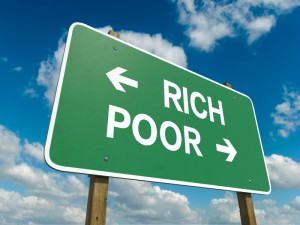
Are you aged 40 or over? How hard have you thought about your
financial future? This is an excellent time for consolidation of all your hard work and assets. Try our over-40 financial security checklist, and see how you measure up. Do you….
- Have a savvy financial adviser?
Your financial adviser should be fully aware of your investment goals and be an expert in your particular investment interests. An astute adviser will help with unpicking the trends, and maximising your investment strategies. Set up regular meetings with them, and make sure to check ASIC records to ensure your chosen advisor has the right qualifications and track record.
- Have an innovative accountant?
How innovative is your accountant? Are they taking advantage of legitimate tax minimisation strategies? The ideal accountant should be a partner in wealth creation, not just managing your money but helping you to create extra revenue streams, through super fund investments for example. There are many good accounting firms in Sydney and the other capital cities that are worth examining if your current accountant doesn’t match up.
- Have a debt reduction plan?
This is crucial. Start paying cash wherever possible. Aim to keep all credit cards at zero each month. Plan to work off all other existing debts, such as mortgages, and prioritise in terms of which has the highest interest rates.
- Maintain your assets?
Once you’ve done a stocktake of your existing assets, it’s important to keep them in excellent condition. This covers everything from your house and car to any articles of high value that you’ve identified are assets unlikely to greatly depreciate.
- Have an emergency fund?
Make sure it’s stocked up and accessible. Budgeting a small amount of money each week into the fund ensures you’re covered in case of any unforeseen medical or other emergencies.
- Understand super performance?
Do you know how much money you will require in order to retire comfortably, depending on the lifestyle you want?
Make sure that you understand the investment products utilised by your super fund, and regularly monitor your account’s performance to ensure it is on track to meeting your goals.
You might also have multiple funds as a result of job-hopping in your 20s. It’s important to consolidate your super, and find the best product. This means you’re not paying fees for multiple funds, or old-style funds with inflexible investment options.
Finally, don’t discount the possibility of setting up a self managed super fund (SMSF). With the right advice and investment strategies, an SMSF can allow you to cherry-pick investment products that are tailored to suit your goals.
- Have multiple income streams for retirement?
What long-term investment products do you currently have that will be ripe for yield in twenty years? It’s also a good idea to diversify wherever possible, for instance having stock options as well as real estate. Look at what equity you can draw upon. Sometimes the modest but regular yearly turnover may be preferable to the high yielding but inconsistent product when planning for retirement.
- Have a business succession plan?
If you own a business it’s a good idea to start thinking about how it will tick over once you retire. Start thinking about a likely successor, and consolidating the business so its structure won’t be shaken up by your departure.
If you said yes to more than four of these, then you’re well on your way to being financially secure. If not, hopefully this checklist will act as a helpful guide as to where the gaps currently lie in safeguarding your future.

